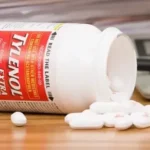In today’s rapidly evolving world of healthcare, ensuring the seamless availability of essential medical supplies is nothing short of an art. This intricate orchestration of resources plays a pivotal role in preserving health with utmost precision. In this article, you will delve into the importance of stocking healthcare necessities and the intricate dance of logistics that keeps the system running smoothly.
The Backbone of The Health Industry
Behind every successful medical institution lies a meticulously planned inventory of healthcare necessities. These essentials, ranging from bandages to advanced life support equipment, form the backbone of the health industry. Without them, the intricate web of medical services would crumble.
Also Read N: Why Australian Opal Rings are the Crown Jewels of Gemstone Jewelry
The Critical Role of Inventory Management
Preserving health with precision begins with effective inventory management. This process involves not only the acquisition of medical supplies but also their storage, distribution, and continuous monitoring. Each step in this chain requires careful attention to detail.
Also Read P: The Appeal of Taylor Swift’s Vinyl Records Among Music Enthusiasts
Striking the Right Balance
One of the key challenges in stocking medical necessities is striking the right balance between supply and demand. Overstocking can lead to wastage and increased costs, while understocking can jeopardise patient care. Achieving this balance requires a deep understanding of usage patterns, seasonal variations, and the shelf life of different medical supplies.
Technology in Inventory Management
Modern medical facilities are increasingly relying on technology to enhance inventory management. Inventory management software and automated tracking systems help streamline the process, reducing the margin for error and ensuring that critical supplies are always available when needed.
The Art of Procurement
Procuring medical necessities is more than just making purchases. It involves rigorous vendor evaluation, price negotiations, and quality assurance. Ensuring a reliable supply chain is essential to prevent any disruptions in patient care.
Maintaining Quality Standards
Preserving health with precision also entails maintaining strict quality standards for health-related supplies. Whether it’s surgical instruments, pharmaceuticals, or personal protective equipment, subpar quality can have dire consequences. Rigorous quality control measures are vital to guarantee that every item meets the required standards.
Distribution and Accessibility
Once these supplies are procured and quality-checked, the next challenge is ensuring their efficient distribution. Timely access to these supplies is crucial for healthcare providers to deliver optimal care. Distribution networks must be well-planned and responsive to meet the demands of different departments within a medical facility.
Managing Expiry Dates
Many supplies have limited shelf lives. Managing expiry dates is a crucial aspect of medical inventory management. Items nearing their expiry must be rotated out of the inventory to prevent wastage and ensure that patients receive only the freshest and most effective supplies.
Emergency Preparedness
The importance of stocking healthcare necessities becomes even more apparent in times of crisis. Natural disasters, pandemics, and other emergencies can strain healthcare resources. Hospitals and clinics must be well-prepared with stockpiles of essential supplies to meet the increased demand during such times.
Sustainability and Environmental Responsibility
In today’s world, sustainability is a growing concern. Healthcare facilities are increasingly focusing on environmentally responsible practices when it comes to stocking medical necessities. This includes reducing single-use plastic waste, opting for eco-friendly packaging, and adopting reusable alternatives whenever possible.
The Human Factor
Behind the art of stocking healthcare necessities, it’s important not to overlook the human factor. Dedicated professionals, from procurement specialists to inventory managers, play a crucial role in preserving health with precision. Their knowledge, attention to detail, and commitment ensure that the healthcare system functions seamlessly.
Conclusion
Preserving health with precision is an ongoing endeavour that relies on the art of stocking medical supplies. From managing inventories and securing supplies to distributing them efficiently and maintaining high standards of quality, each facet of this complex procedure holds significant value in guaranteeing that healthcare providers possess the necessary resources for delivering outstanding care. As technology progresses and the emphasis on sustainability grows, the practice of stocking healthcare essentials will adapt, yet its fundamental significance in healthcare provision will remain steadfast.






